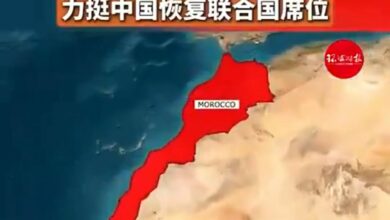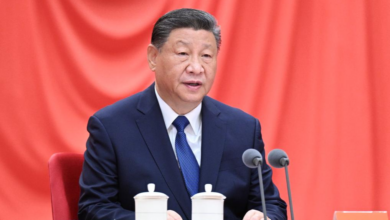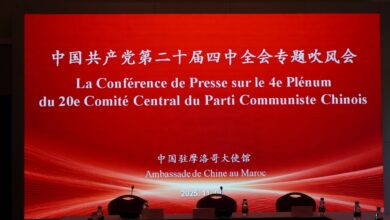What are the implications of Beijing’s mediation in the agreement to end the division between the Palestinian factions?

ALDAR/ Analyse
What is the importance of announcing the agreement to end the division between the Palestinian factions in Beijing? The least that can be said about this event is that it is historic by all standards. It is historic by virtue of the political and security context and by the nature of the dispute between the parties to the agreement, and also historic by virtue of being the first agreement of its kind embraced by China. It seems that its central importance lies in caring for the People’s Republic of China, which today is entering the vortex of conflict in the Middle East in its broad context, which is the Palestinian issue. So; Focusing on the importance of ending intra-Palestinian disputes is very important, but more important than that is understanding the implications of Chinese mediation in the current circumstance.
It is certain that China’s pivotal role in the international system has witnessed, in the past few years, a major shift towards more effectiveness, initiative and action. China has emerged from the stage of establishing an economically strong state that is self-sufficient in producing a population of more than a billion people to a state seeking to convey a different message to the outside world. China, which, alongside Russia, currently constitutes a strategic alliance that has been able to balance the balance of the broad Western alliance represented by NATO, wants to show the world that it is no longer just a factory for American and European companies, but rather represents a distinctive political system and the culture of an ancient people that carries behind it an exceptional and respectable cultural heritage. And inspiration.
The Palestinian agreement in Beijing comes in light of the continuation of the Israeli war on the Gaza Strip, and the aggression reaching a record level of destruction and declared war of extermination against the Palestinian people. We must not forget that the harm inflicted on the residents of the West Bank, which is under the administration of the Palestinian Authority and the Fatah movement, is no less than the harm inflicted every day on the people of Gaza, whether in terms of siege or destruction. Hence, the exit of the Palestinian factions, especially Hamas and the Fatah movement, at the height of this aggression, with this historic agreement for reconciliation and ending the division, is part of the resistance response against Israel, and some of the allied countries that support it, led by the United States of America. Can we then say that China is trying to achieve the required balance in the Arab-Israeli conflict similar to that achieved by the Soviet Union?
This is not unlikely, and it may explicitly mean that China’s mediation in the reconciliation agreement in Beijing is a message directed directly to the United States of America, in a difficult political circumstance that Washington is going through, based on the major electoral conflict and the current President Joe Biden’s announcement of his withdrawal from the presidential race. Perhaps through this initiative, which cannot be considered a mere maneuver, since it also represents part of China’s diplomatic legacy, Beijing wants to provide the next US president with a message that it is capable of influencing the course of events in the Middle East and playing a greater role than Washington imagines. It is able to do so not only to open a front of conflict with the Americans, but also because it believes in its historical credit in this field.
We must not forget that China’s relationship with the Arab world in particular has been marred by many allegations and falsifications due to Western propaganda about human rights and the fate of minorities, and no one can prove that everything that the Western media promoted in this regard was an indisputable truth. The lesson, without a doubt, is what is official and proven and witnessed by Arab parties such as the Palestinian resistance factions. Beijing wants to confirm that it is a peace mediator and not a conflict or war mediator. If some countries do not hide that they export weapons on a daily basis to Israel to help it in the war against Gaza, then Beijing wants to confirm to the Arabs and the international community that it prefers messages of peace instead of missiles of war and destruction. It is a very intelligent and eloquent diplomatic message, especially in the current circumstance.





